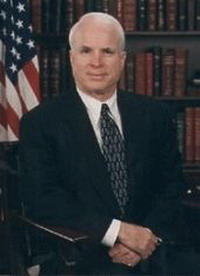U.S. presidential candidates to confront gun-control issues

The opportunity to keep arms may become insupportable after the mass murder in Virginia Tech university. Gun control has been treated with a mix of silence and discomfort in the 2008 presidential campaign.
Democrats have been deliberately muted for months on an issue that, by their own reckoning, contributed to and perhaps sealed their defeat in the 2000 presidential election. That was when Al Gore's call for gun registration cost him votes in rural America and dulled the party's appetite for taking on the gun lobby.
Top Republicans in the race are trying to close ranks with their party's conservative base on a variety of issues, making gun control an unusually sensitive one for them, too, thanks to their liberal views in the past.
Enter the massacre at Blacksburg, Virginia, an attack so horrific it froze the presidential campaign in place. Candidates called off events and expressed only sorrow, not opinion, in the first hours.
Advocates of any stripe raised their gun agenda at their peril.
"I think that people who want to take this within 24 hours of the event and make it their political hobby horse to ride ... I've got nothing but loathing for them," Virginia Gov. Tim Kaine said. "To those who want to try to make this into some little crusade, I say take that elsewhere."
But the bloodiest shooting rampage in modern U.S. history, with 33 dead, is certain to set off a debate that those who would be president can hardly sit out in the days and weeks ahead.
Rudy Giuliani waded gently into it Wednesday, a day after Republican rival John McCain said that the attack did not throw him off his support for constitutional gun rights.
"Obviously, this tragedy does not alter the Second Amendment," Giuliani said in a statement. "People have the right to keep and bear arms and the Constitution says this right will not be infringed."
His emphasis on state-by-state solutions to gun control in the Republican primaries contrasts with his past enthusiasm for a federal mandate to register handgun owners - an even stiffer requirement than registering guns.
Giuliani, as New York mayor and former Senate candidate, and Mitt Romney, as Massachusetts governor, supported the federal ban on assault-type weapons, background checks on gun purchases and other restrictions reviled by many gun-rights advocates.
The other New Yorker in this race, Democratic Sen. Hillary Rodham Clinton, also supported proposals for state-issued photo gun licenses, as well as a national registry for handgun sales, in positions laid out for crime-weary New Yorkers in 2000.
In this campaign, candidates in both parties who have ever taken a shot at a prey are playing up their hunting credentials. Others are highlighting their allegiance to the constitutional right to bear arms or avoiding the question altogether.
Now such questions are unavoidably in their face.
"Not talking about an issue may be successful inthe short term but it's never a successful long-term strategy," said James Kessler, policy and gun-control specialist at Third Way, a Democratic centrist group. "I don't think that a candidate will be punished for supporting gun safety measures this time around."
But, he said he thought that after the Columbine school killings in 1999, lawmakers could pass legislation requiring background checks on weapons bought at gun shows "and we didn't."
Mass shootings have often been the catalyst for legislative action on gun control, with mixed results.
And with Democrats controlling Congress partly on the strength of new members from rural parts of the country, few lawmakers were expecting the Virginia Tech assault to revive the most far-reaching gun-control proposals of the past, such as national licensing or registration.
In 1999, after the Columbine High School killings in Colorado left 15 dead, lawmakers unsuccessfully introduced dozens of bills to require mandatory child safety locks on new handguns and ban so-called "Saturday night specials" - the inexpensive guns that authorities have said are used in a large number of crimes. Lawmakers also tried to increase the minimum age for gun purchases and require background checks on weapons bought at gun shows.
A month after the Columbine shootings, then-Vice President Gore cast the tie-breaking vote in the Senate to advance a juvenile crime bill that included gun show restrictions. But the bill died in negotiations with the House.
McCain has a long record of voting for gun rights in the Senate but changed some of his views, sponsoring legislation to support the gun show restrictions he once opposed.
And Democratic candidate John Edwards, despite recently highlighting his boyhood outings hunting birds, rabbits and deer as well as his respect for gun ownership rights, backed his party's main gun control measures when he was in the Senate.
Illinois Sen. Barack Obama, as a state lawmaker in the 1990s, supported a ban on semiautomatic weapons and tougher state restrictions on firearms.
Gun control seemed far from the minds of voters before the murders Monday. In an AP-Ipsos poll taken last week in which respondents were asked to name the most important problem facing the country, few if any spontaneously mentioned guns or gun control. That is likely to change in response to the Blacksburg rampage.
The Virginia Tech senior and South Korean native identified as the gunman, Cho Seung-Hui, was a legal permanent resident of the U.S., meaning he could legally buy a handgun unless he had been convicted of a felony. The campus killings were carried out with 9 mm and .22-caliber handguns.
"I think when a guy walks in and shoots 32 people it's going to cause there to be a lot of policy debate," President George W. Bush said. "Now is not the time to do the debate until we're actually certain about what happened and after we help people get over their grieving."
Subscribe to Pravda.Ru Telegram channel, Facebook, RSS!


